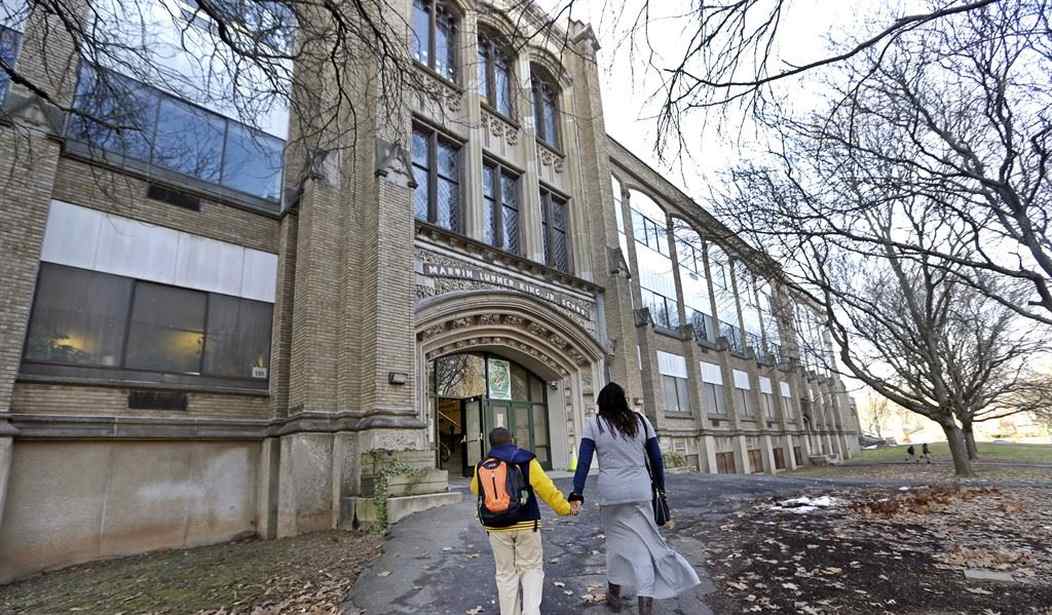As we celebrate Black History Month and the great accomplishments of African Americans to the United States since its founding, I wanted to take a different perspective -- one that focuses on what Black Americans must do to achieve economic and generational prosperity.
We must be concerned about the plight of many Black communities in the United States, which are plagued by high poverty, high crime and dismal educational systems. We must first recognize that these issues are neither ordained nor inevitable but rather require significant transformation. This is accomplished by emphasizing faith, family and education as key ingredients in lowering crime, reducing poverty, and developing individuals who are ready to compete aggressively in the complicated and tough global economy.
We all know that acquiring a decent education is directly linked to lower crime rates. We also know that the family unit is an important framework for providing the necessary support and balance for children to thrive. These are the issues that must be addressed during Black History Month and beyond.
It is no longer sufficient to invest in initiatives that do nothing to alleviate poverty or provide young men with a better and more productive way to channel their energy that does not result in the disintegration of their communities through violence, crime and drugs. We must consider how we might provide opportunities, conditions and incentives to help many poor Black communities escape poverty and succeed.
Recommended
One primary area that lawmakers and community leaders should focus on is that of education. Education has, for millennia, been the primary means of lifting people out of poverty. When a Black child is equipped with the skills and knowledge that a proper education provides, boundless opportunities will actualize, and he will inevitably do good for both his community and the world. When our Black youths can learn to turn to words instead of violence, and a book instead of a gun, it will be then that we will see what the future for these children has in store. Statistics show that poor education plagues Black youths, and it is precisely this issue that we must address first in order to lift future generations within the Black community out of poverty.
Facilitating these opportunities will demonstrate that Black Americans can achieve economic empowerment and development with the correct leadership and assistance, and it will aid in the recovery of many distressed communities across the United States. A large majority of Black Americans need and desire positive and significant change. However, we must accept that some people are oblivious to the options available to them because they have been exposed to a recurrent cycle of terrible examples of what not to do to be successful.
And, with such a strong focus on racial injustice, we must consider what other injustices we are oblivious to that cause incongruence in our ostensibly righteous actions. We all know that injustice doesn't just happen in one place or among one group of people. If there is a systemic problem, it will eventually affect everyone; the thinking, conscientious individuals among us are well aware of this.
Some people are going to disagree with my solutions to some of these problems, and that's fine. Acceptance does not necessarily imply agreement; that is, we can accept problems because they are directly in front of us, but that does not mean we must always agree on how to solve them. It is precisely this notion that so frequently divides us, and now is the moment to work together, not apart, so that we may reflect on the past during Black History Month and take the necessary steps in the present to change the future.
Black people must never think of themselves as victims, but rather as champions. To move the needle forward, we need fresh ideas nurtured by a new generation of thinking leaders. People must trust in themselves and understand that their circumstances do not determine their fate. There is also a need to recognize the value of working together as a society to uplift everybody rather than fighting against one another in a tribal manner for personal greed and selfishness. Whether we recognize it or not, our joint success is contingent on society elevating and empowering those who are in need. When this occurs, people cease being victimized, and everyone gets the potential to prosper as a result of our shared ideals of success.
I am convinced that the Black community can progress and live up to the standards set by so many former Black icons. But that transformation must begin with each of us as individuals, regardless of skin color. As the old adage goes, we are our brother's keeper.
























Join the conversation as a VIP Member